U.S. Defense Secretary Mark Esper says South Korea is wealthy enough to pay a bigger share of the cost of having U.S. troops on its soil.
He was asked at a joint news conference Friday with his South Korean counterpart about negotiations on renewing an agreement under which Seoul plays a portion of the cost of having about 28,000 American troops to buttress defenses against North Korea.
Esper says the South’s wealth means – in his words – “it could and should pay more.”
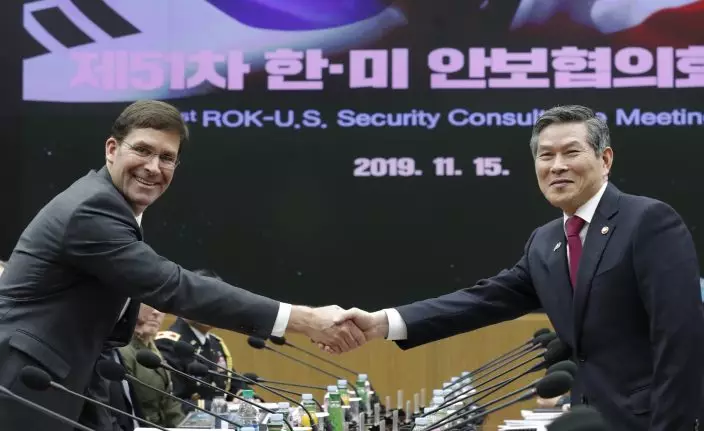
U.S. Defense Secretary Mark Esper, left, and South Korean Defense Minister Jeong Kyeong-doo shake hands for the media prior to the 51st Security Consultative Meeting (SCM) at Defense Ministry in Seoul, South Korea, Friday, Nov. 15, 2019. (AP PhotoLee Jin-man, Pool)
South Korea currently pays a little under $1 billion a year for U.S. military support. South Korean press reports say Washington is demanding that Seoul pay about $4.7 billion. Neither Esper nor his South Korean counterpart confirmed that figure.
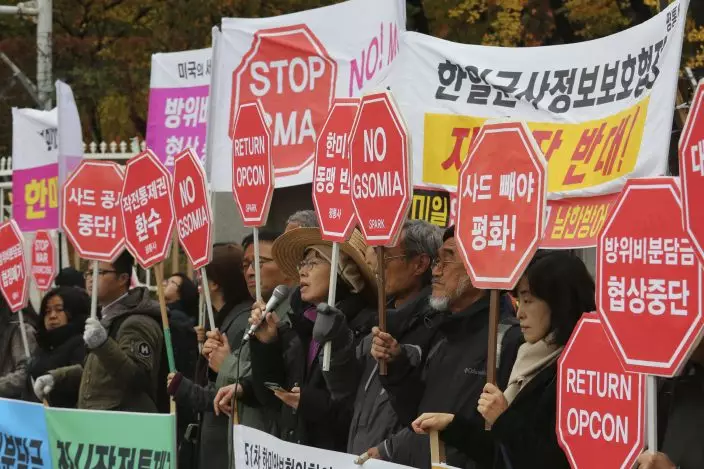
Protesters stage a rally to oppose a visit by U.S. Secretary for Defense Mark Esper in front of the Defense Ministry in Seoul, South Korea, Friday, Nov. 15, 2019. The sign reads "We demand to abolish the General Security of Military Information Agreement, or GSOMIA, an intelligence-sharing agreement between South Korea and Japan." (AP PhotoAhn Young-joon)
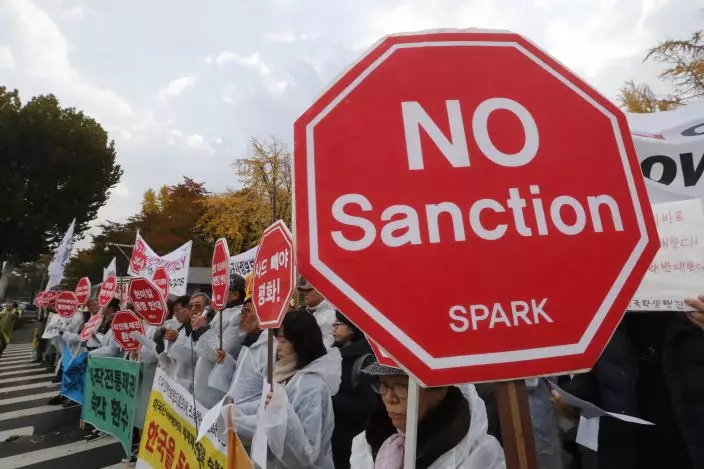
Protesters stage a rally to oppose a visit by U.S. Secretary for Defense Mark Esper in front of the Defense Ministry in Seoul, South Korea, Friday, Nov. 15, 2019. (AP PhotoAhn Young-joon)
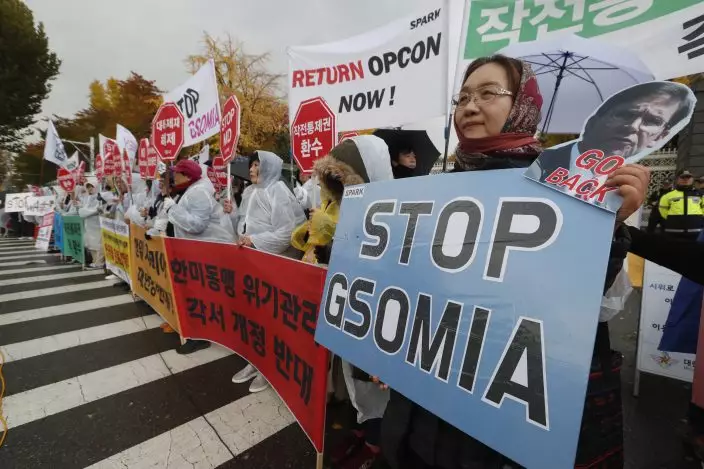
Protesters stage a rally to oppose a visit by U.S. Secretary for Defense Mark Esper in front of the Defense Ministry in Seoul, South Korea, Friday, Nov. 15, 2019. The sign reads "We demand to abolish the General Security of Military Information Agreement, or GSOMIA, an intelligence-sharing agreement between South Korea and Japan." (AP PhotoAhn Young-joon)
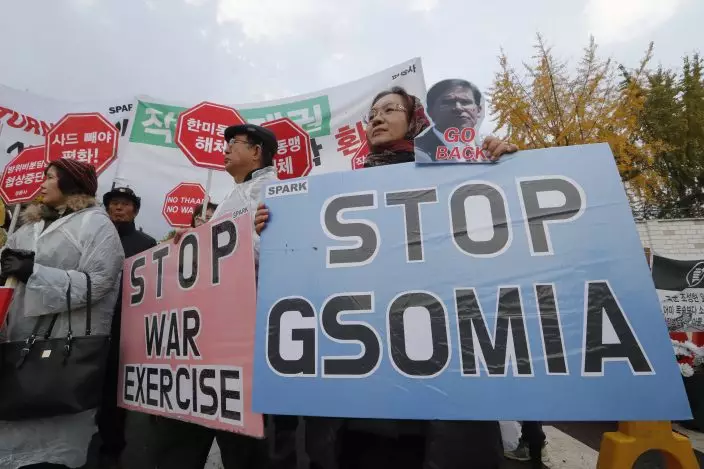
Protesters stage a rally to oppose a visit by U.S. Secretary for Defense Mark Esper in front of the Defense Ministry in Seoul, South Korea, Friday, Nov. 15, 2019. The sign reads "We demand to abolish the General Security of Military Information Agreement, or GSOMIA, an intelligence-sharing agreement between South Korea and Japan." (AP PhotoAhn Young-joon)
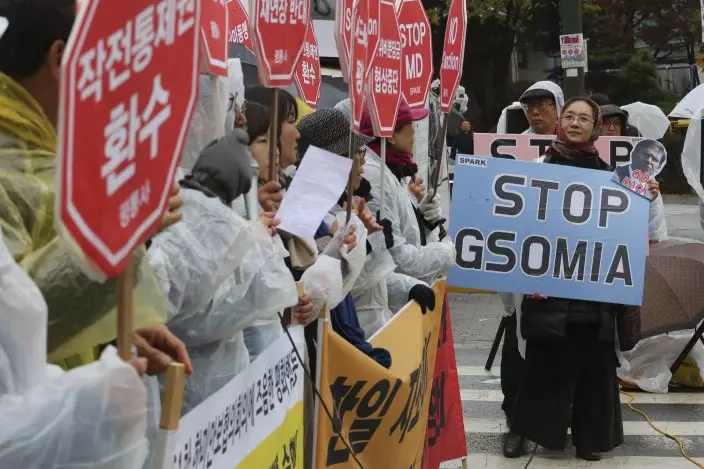
A protester holds a placard during a rally to oppose a visit by U.S. Secretary for Defense Mark Esper in front of the Defense Ministry in Seoul, South Korea, Friday, Nov. 15, 2019. The sign reads "We demand to abolish the General Security of Military Information Agreement, or GSOMIA, an intelligence-sharing agreement between South Korea and Japan." (AP PhotoAhn Young-joon)
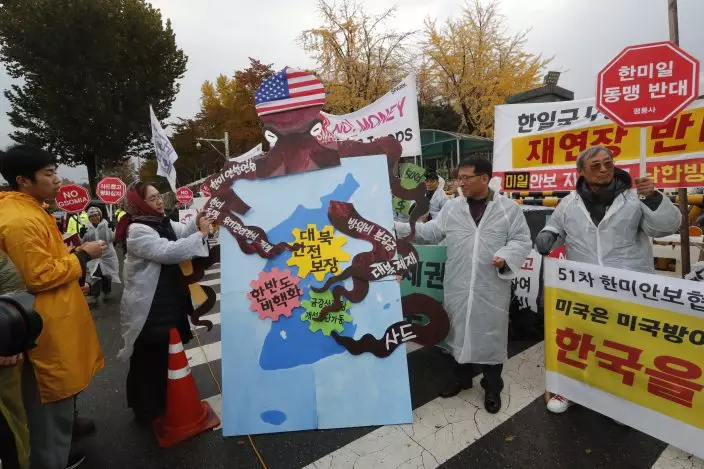
Protesters with a board depicting an octopus symbolizing the United States grabs the Korean Peninsula during a rally to oppose a visit by U.S. Secretary for Defense Mark Esper in front of the Defense Ministry in Seoul, South Korea, Friday, Nov. 15, 2019. The sign reads "We demand to abolish the General Security of Military Information Agreement, or GSOMIA, an intelligence-sharing agreement between South Korea and Japan." (AP PhotoAhn Young-joon)
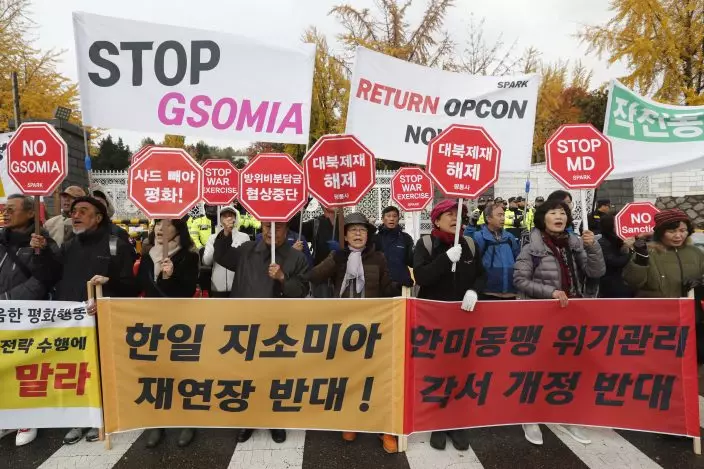
Protesters stage a rally to oppose a visit by U.S. Secretary for Defense Mark Esper in front of the Defense Ministry in Seoul, South Korea, Friday, Nov. 15, 2019. The sign reads "We demand to abolish the General Security of Military Information Agreement, or GSOMIA, an intelligence-sharing agreement between South Korea and Japan." (AP PhotoAhn Young-joon)


